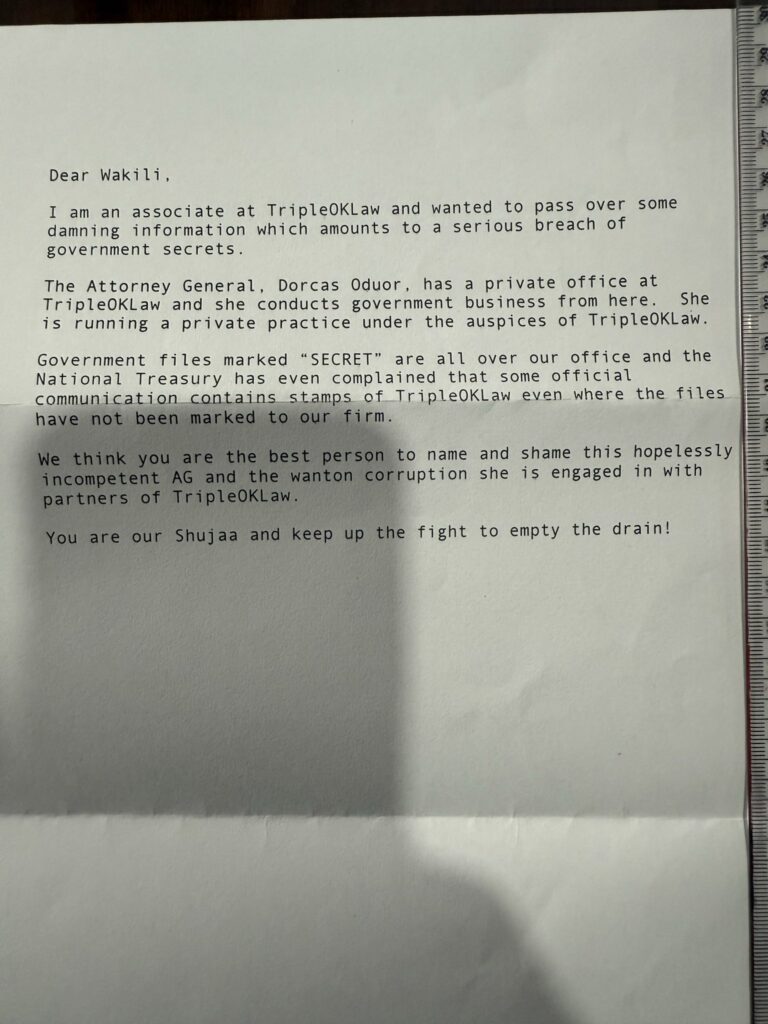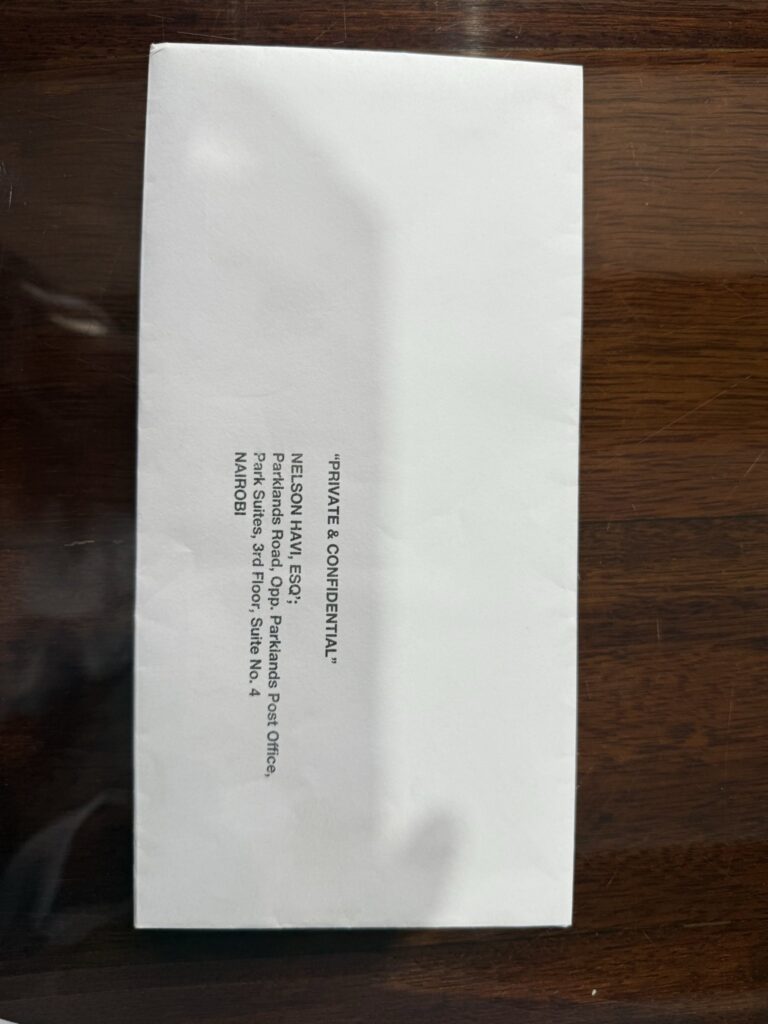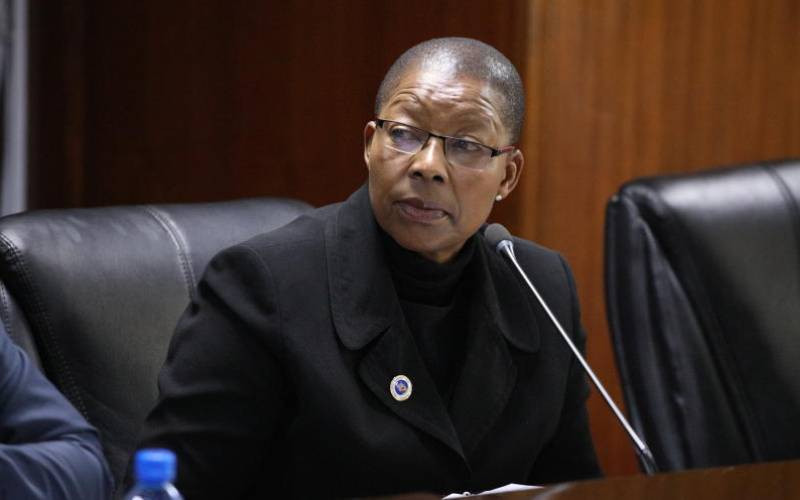A recent letter shared by former Law Society of Kenya (LSK) president Nelson Havi has sparked intense public debate over how the Office of the Attorney General conducts its operations and interacts with private law firms.
The letter, which Havi posted on his social media platforms, raises questions about the possible mixing of government duties with private legal practice.
It claims that official government business is being carried out within the offices of TripleOKLaw LLP, a private law firm based in Nairobi.
According to the letter, which was unsigned but marked “Private and Confidential,” government files some labeled “SECRET” have been handled within the firm’s premises.

It also suggests that correspondence and documents from the National Treasury and other ministries have passed through the private firm’s systems.
The letter further alleges that Attorney General Dorcas Oduor maintains a private office at TripleOKLaw LLP, where government business is said to be conducted.
Nelson Havi, who currently chairs the Retirement Benefits Authority (RBA), said the communication came from an associate within TripleOKLaw LLP.
The whistleblower, claiming to work at the firm, expressed concern that government operations and private legal work were being carried out in the same environment, calling it a breach of confidentiality and professional ethics.
The message urged Havi to expose the matter publicly, describing it as a serious violation of government protocol and potential corruption.
TripleOKLaw LLP, established in 2002, is one of Kenya’s well-known law firms and has represented several major corporations, including state agencies such as the Kenya Airports Authority (KAA) and Kenya Pipeline Company.

The firm is also part of Meritas, a global network of independent law firms.
In recent months, it has drawn attention for demanding Ksh 250 million from KAA for legal work linked to disputes involving India’s Adani Group a figure that some legal experts have described as abnormally high for government-related litigation.
The release of the letter has come at a time when scrutiny over legal fees charged to government agencies by private law firms is growing.
Havi commented that the claims outlined in the letter could help explain the unusually large legal fee demand by TripleOKLaw LLP.
He questioned why the firm would seek such a huge amount for work that, in his view, other lawyers might have taken up as part of public service or pro bono representation.
Attorney General Dorcas Oduor, who became Kenya’s first female AG in 2024, has had a long career in public service.
Before her appointment, she served as Secretary of Public Prosecutions and participated in several national commissions investigating corruption and public misconduct.
Her new role makes her the principal legal adviser to the government, tasked with overseeing how public institutions engage private legal services and ensuring compliance with ethical and legal standards.
The allegations in the whistleblower’s letter raise critical concerns about accountability and the separation of roles between public offices and private entities. If true, the handling of government files and correspondence in a private law office would pose serious risks to state confidentiality and integrity.
Legal analysts say that even the perception of such a mix can damage public trust in the independence and professionalism of the Attorney General’s office.
The debate now extends beyond the letter itself to broader questions about how government legal work is managed and billed.
Under the Advocates (Remuneration) Order, all legal fees involving public matters must be taxed and justified based on the nature and scope of work.
Any deviation from this process could be seen as a misuse of public funds. Moreover, the Constitution requires the Attorney General to coordinate all legal representation involving public entities to avoid duplication, excessive billing, or conflict of interest.
The claims in the letter have therefore opened a wider conversation about ethics, transparency, and the thin line between private gain and public duty.
The handling of government briefs must be done with utmost care, not just to uphold the law, but to preserve public confidence in state institutions.





















Add Comment